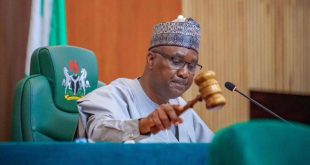SYDNEY, Dec 24 (IPS) – What a difficult 12 months 2020 has been! A 12 months of residing dangerously – “Tahun vivere pericoloso”- maybe these phrases of late President Soekarno of Indonesia are one of the best description.
Thankfully, I managed to stay sane, studying and writing op-eds (principally concerning the pandemic, here, here).
I started the 12 months 2020 with an interview with New Age (Dhaka, 12 Feb.), headlined, “We need to Democratise Politics” the place I highlighted the perils of rising inequality and the way it may very well be a larger risk than the evolving pandemic for the human race, interacting with the local weather disaster and developments in biotechnology and synthetic intelligence. The pandemic appears to have accelerated the method.
The Economist described the 12 months of “Nice Lockdown”, when all the world was shut down, as “the year when everything changed” – the lead title of The New York Instances columnist, Gail Collins’ e book When The whole lot Modified: The Wonderful Journey of American Girls from 1960 to the Current (2009).
When the facemask not solely grew to become an emblem of the 12 months, but in addition of a daunting new age, many pointed to deadly flaws within the neoliberal paradigm that got here to dominance for the reason that early 1980s with the Thatcher-Reagan onslaught on the post-World Struggle II social contract that revered staff’ proper and promised full employment and common provisioning of important public items, and unleashing of greed (recall the 1987 film “Wall Road”, the place Michael Douglas as Gordon Gekko captured the essence of neoliberalism, “Greed, for lack of a greater phrase, is nice”).
It was refreshing to listen to the torch-bearer of company capitalism, Klaus Schwab, say to TIMES, “the neoliberalist … method facilities on the notion that the market is aware of greatest, that the ‘enterprise of enterprise is enterprise,’ and that authorities ought to chorus from setting clear guidelines for the functioning of markets. These dogmatic beliefs have proved unsuitable”.
Therefore, Schwab argued, “We should transfer on from neoliberalism within the post-COVID period”, and acknowledged, “Free-market fundamentalism has eroded employee rights and financial safety, triggered a deregulatory race to the underside and ruinous tax competitors, and enabled the emergence of huge new international monopolies. Commerce, taxation, and competitors guidelines that replicate many years of neoliberal affect will now need to be revised”.
Agreed Francis Fukuyama, who celebrated the autumn of the Berlin Wall and the dissolution of socialist experiments together with his The Finish of Historical past and the Final Man. “a sure set of concepts about the advantages of unregulated markets … had a disastrous impact… it’s led to a weakening of labour unions, of the bargaining energy of atypical staff, the rise of an oligarchic class …that … exerts undue political energy”. Thus, he thought, “socialism ought to return again”, that means “redistributive programmes that attempt to redress this huge imbalance in each incomes and wealth. He additional stated, “if there’s something we discovered from the monetary disaster it’s that you simply’ve obtained to control the sector like hell as a result of they’ll make everybody else pay”.
Thus, it was encouraging to see the advocates of neoliberalism, equivalent to The Financial Times pen an editorial reminding the readers of the core of the post-WWII social contract, “to demand collective sacrifice you could supply a social contract that advantages everybody”.
It was additionally heartening to see the IMF’s Managing Director Kristalina Georgieva transfer swiftly to rearrange debt aid for low-income nations in an modern manner which is superior to the G20’s imply supply of debt suspension to be re-paid totally with collected curiosity obligations (no shock not many takers). It was a music to listen to debt hawks, equivalent to Carmen Reinhart, the Chief Economist of the World Financial institution, advise, “First you worry about fighting the war, then you figure out how to pay for it”. The Financial institution additionally “paused” its controversial Doing Enterprise Report that inspired a “magnificence contest” of deregulation within the “race to the underside” after it might now not defend its knowledge manipulation in favour of right-wing regimes.
So, “when every thing modified”, there was an excellent hope of change in the best way we organise economies and societies, and reply to widespread threats to humanity; that low-paid staff can be recognised for his or her important companies; that the rent-seeking actions of the rentier class can be restrained; that the widening disparities in earnings, wealth and alternatives can be reversed; that there can be inclusive multilateralism recognising differentiated duty in collective international response; that nobody or nation can be left behind; and the record grows.
Nevertheless, not everybody was so sanguine. Simon Mair of the College of Surry, for instance, contemplated four possible post-COVID world: a descent into barbarism, a strong state capitalism, a radical state socialism, and a metamorphosis into an enormous society constructed on mutual support. He believed, “variations of all of those futures are completely attainable, if not equally fascinating”. All of it will depend on the selection we make and the choices that our political leaders take.
Amartya Sen believes that “a greater society can emerge from the lockdowns” because it occurred after WWII; however he’s involved that “within the insurance policies in opposition to the current pandemic, fairness has not been a very noticeable precedence…As a substitute, the main focus has been on drastic management and sudden lockdowns … with little consideration paid to labourers who lose their jobs or the numerous migrant staff, the poorest of the poor, who’re saved a whole lot of miles from their houses”.
In the meantime Luke Cooper and Man Aitchison of LSE list four dangers ahead: ‘deglobalisation’ takes a nationalist kind; much less democratic participation, extra centralisation; surveillance state and erosion of human rights; inequality goes unchallenged.
I’m not a fan of Tony Blair; however I are likely to share his eerie feeling, when he says, “for the first time ever I’m troubled about the future”. He fears, “COVID-19 will usher in a world the place insecurity and unpredictability represent the brand new regular. The whole lot that was related and current earlier than COVID shall be there afterwards, besides intensified and accelerated… to supply a whole lot of hardship with the burden falling usually on essentially the most susceptible”.
I’ve causes to be spooky. I record a couple of:
Vaccine nationalism guidelines forgetting that we defeated small-pox that has been one of many main causes of dying and blindness for hundreds of years in lower than a decade via unprecedented international cooperation on the peak of the Chilly conflict.
Governments stay beholden to Large Pharmas in opposing the waiver of patent rights, falsely arguing that patent rights are wanted for innovation, and ignoring the truth that we gained in opposition to polio with a vaccine without patent.
Company bosses shamelessly paid themselves fat bonuses and used tax-payers’ pandemic relief money to pay dividends, and buy-back shares, whereas thousands and thousands misplaced jobs and livelihoods.
But governments are providing extra company tax cuts and additional eradicating job and wage protections, as an alternative of standing as much as company curiosity, ignoring the truth that these are the very insurance policies that contributed to widening disparities, sluggish progress, stagnating productiveness and power fiscal crises.
In the meantime billionaires have become richer and thousands and thousands are pushed again to poverty and precarious residing.
Governments have missed the chance to reboot and speed up the achievement of sustainable growth objectives. The pandemic has proven that we will stay on much less and do not need to over-crowd cities.
However governments have did not facilitate the thousands and thousands of people that moved to villages and rural cities to remain by taking jobs and companies there, and designing adjustment measures; governments didn’t seize the chance to repair city bias and provoke regenerative economies.
Governments and policymakers are refusing to recognise that each existential threats – the local weather disaster and the pandemic – though look like “environmental” or “pure” issues, they’re socially pushed.
Local weather disaster is brought on by society’s choice to over-consume and over-produce, the very components which are destroying pure habitats of wild-lives and bringing people in shut contact with virus-carrying animals.
Tackling each pandemic and local weather disaster can be a lot simpler if we lower or stop our hedonic life-style and nonessential financial actions
In the meantime, Nobel Laureate economist Michael Spence is advocating the return of structural adjustment period conditionalities for nations in search of assist from the Financial institution and the Fund, ignoring the findings of the Financial institution’s Development Fee, he chaired, that fair-seeming, “good-intentioned” conditionalities produced “misplaced many years” of growth.
One other Nobel Laureate Joseph Stiglitz is advocating Brady-style bond buybacks utilizing the IMF and donor cash, whereas these monies are urgently needed for fighting pandemic, ignoring that the debt panorama has modified considerably since Brady with extra assorted gamers and that such debt buybacks previously benefited the collectors.
Sadly, they aren’t providing a roadmap for a brand new extra affluent, inclusive and sustainable future.
In my adopted nation, Australia, the federal government is foot-dragging and refusing to take bold and ambitious green-house gas emission targets regardless of witnessing worst bushfires and excessive climate occasions in historical past. It has completed nothing to guard gig staff regardless of 4 Uber-eat delivery riders killed in street accidents taking meals to folks in lockdown. It’s considering reforms of the economic relations legal guidelines which are certain to make the lifetime of important staff like fire-fighters, nurses, cleaners and food-delivery individuals extra precarious.
My nation of dreaming, Bangladesh, is now listed as new ‘autocracy’ the place the federal government has change into illiberal, arresting and harassing journalists and anybody exposing its misdeeds, and corruptions even when it concerned pretend COVID testings, and aid cash and items. Further-judicial killings and compelled disappearance have change into devices of management, whereas all of the state establishments, together with the judiciary, the police and paperwork are politicised.
Nonetheless, there are some rays of hope as we welcome 2021 within the spontaneous mass mobilisation in Thailand and Belarus in opposition to despots, in Chile’s referendum to fulfill folks’s democratic aspirations, in impulsive resistance in India in opposition to the farm legal guidelines selling company curiosity, in Indonesia’s mass protest in opposition to the controversial, omnibus invoice that assaults staff’ rights; in defeating imperialist plots in Bolivia; in imposing taxes on Argentina’s rich and wealthy; in Zambia’s choice to default that defied debt-hawk’s scare-mongering.
Hope is an incurable illness that retains us alive and transferring. Be secure and properly. Allow us to ponder over the teachings of the crises; the connection with our governments; social contract and belief; measures of societal progress; and the way our economies be extra distributive and regenerative or sustainable.
Follow @IPSNewsUNBureau
Follow IPS New UN Bureau on Instagram
© Inter Press Service (2020) — All Rights ReservedOriginal source: Inter Press Service
 Top Naija News – Nigeria News, Nigerian News & Top Stories Top Naija News – Nigerian Newspapers, Nigerian News. topnaijanews is a daily Nigerian newspaper covering Latest News, Breaking News, Entertainment, Sports, Lifestyle and Politics.
Top Naija News – Nigeria News, Nigerian News & Top Stories Top Naija News – Nigerian Newspapers, Nigerian News. topnaijanews is a daily Nigerian newspaper covering Latest News, Breaking News, Entertainment, Sports, Lifestyle and Politics.




